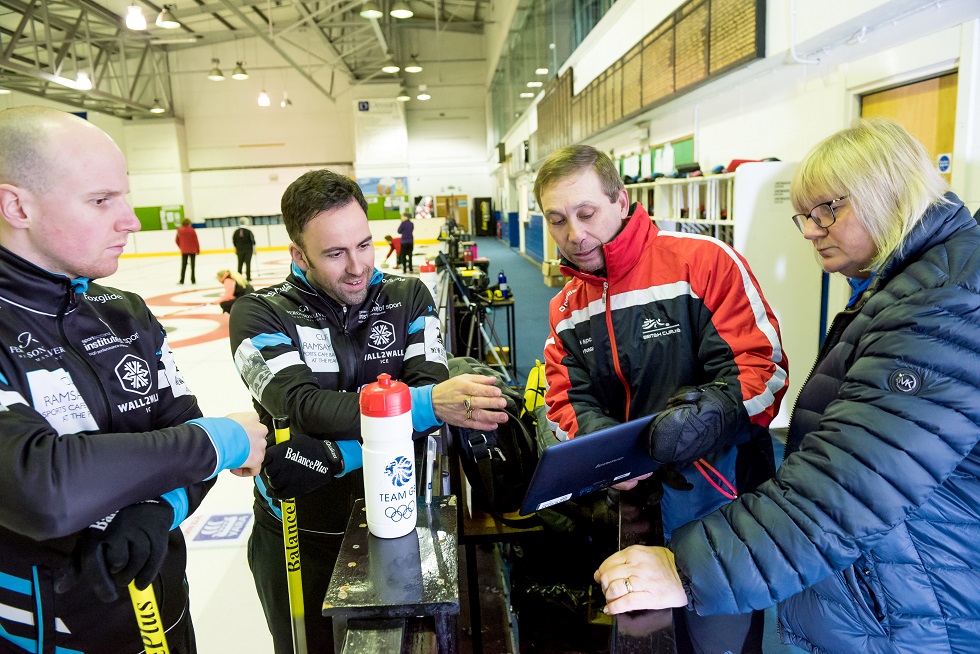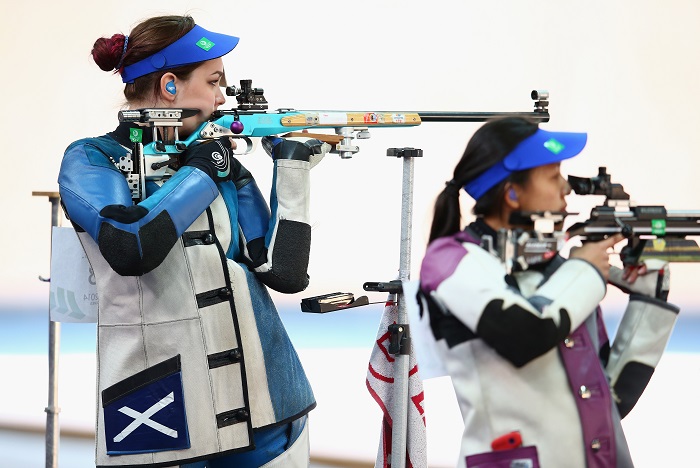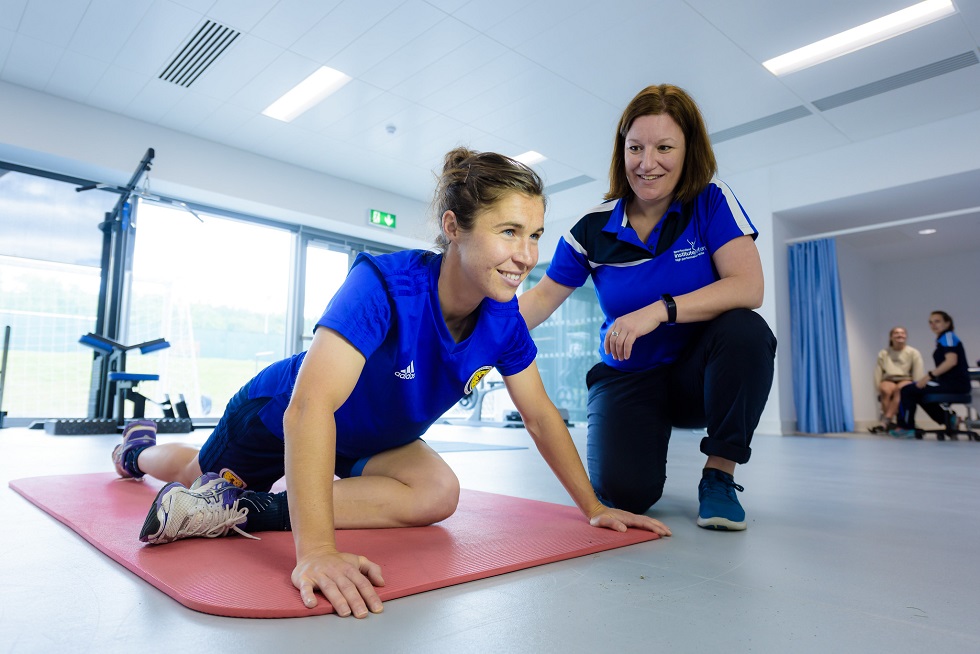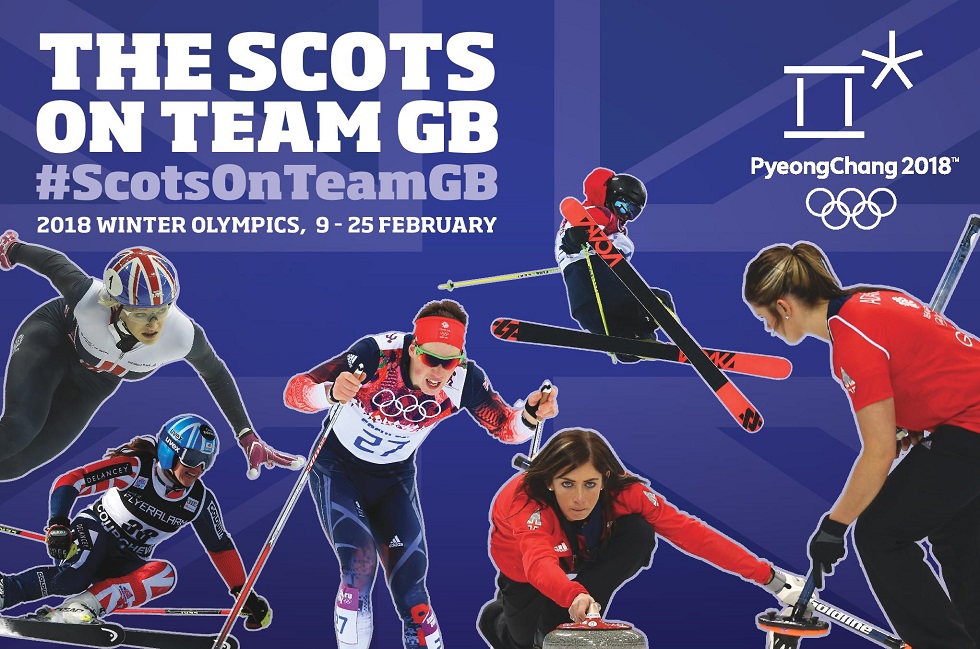Curling occupies a unique place on the Scottish sporting landscape.
There is no other sport where multiple Olympic and Paralympic medals have been delivered by a programme run entirely within the confines of this nation.
As such, curling is very much a flagship programme for sportscotland and we work closely with British Curling in providing world class support to the athletes through sportscotland institute of sport expertise. There are a lot of athletes benefiting from this support, perhaps more than many people might be aware.
Although David Murdoch, Eve Muirhead and Aileen Neilson enjoy the highest profile thanks to their exploits as medal-winning skips in the Sochi Winter Olympics and Paralympics in 2014, there are currently 29 high-performance curlers in the programme. When the development curlers who receive Performance Foundation funding are added to the mix, the quota exceeds 50.
So how do the institute experts ensure that such a large British-wide programme, subject to the same UK Sport targets as the sports that are managed from headquarters south of the border, runs smoothly?
With one year to go until the 2018 Winter Olympic Games in PyeongChang, Korea, Sport First caught up with Tony Zummack, Head of Coaching for the curling programme, to find out more about how this uniquely successful Scottish sport works at the point of delivery.
How has the curling programme changed since you arrived here from Canada?
“In the six years since I came over, it has become a much more integrated system,” says Tony. “How British Curling interacts with institute staff has improved, where before it was a little more ‘us and them’ working under two different umbrellas.
“Now it’s much more of a collective and that allows for more seamless operation between the two.
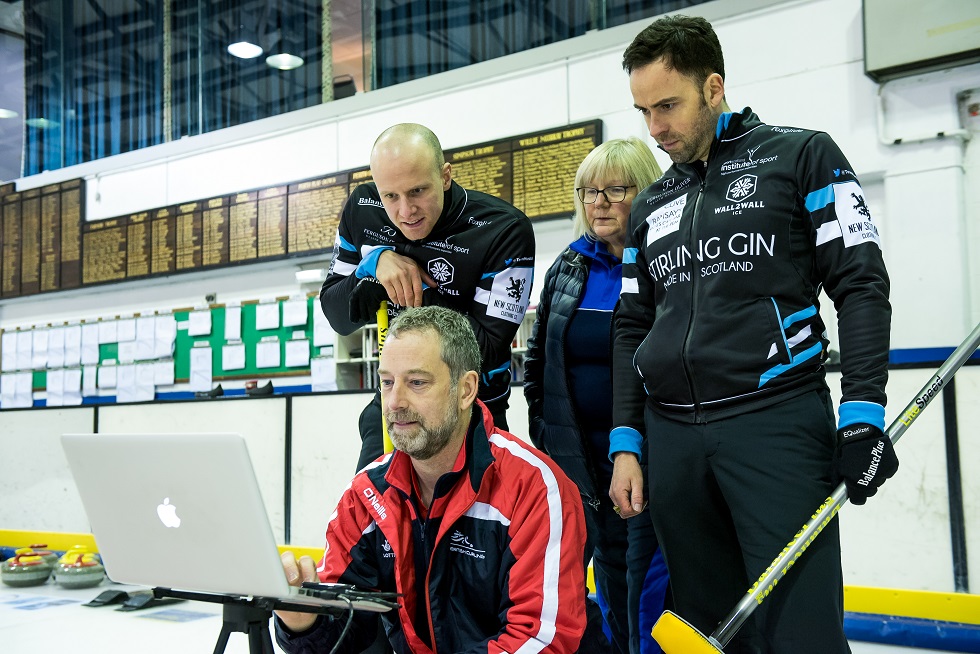
Team Murdoch with performance analyst Kenny More and physiotherapist Lindsay Thomson
“An integrated system allows us to have fewer points of communication for the athletes.
“Let me give you an example. An athlete is doing something on ice and gets some direction from the technical coach. The athlete then goes to a gym session a couple of hours later and gives feedback on what happened on the ice to their physical preparation coach, who says ‘well, that actually links really closely into the exercise that we are doing over here’.
“If you equate your posture in the gym to your posture on ice, you can see how that ties together. Then the physio becomes involved in the conversation and says ‘well, when we did your assessments they showed you had a muscular imbalance over here, because you’re tight in this area’.
“The athlete then loosens that off by doing proper stretching, which allows them to do proper gym work which actually feeds into how they train on ice.”
How does that integration benefit the athletes?
“The ability to have all these people working side by side, day in day out, not only with the athletes but as a collective group, allows the professionalism within the entire structure to happen in a much less onerous way.
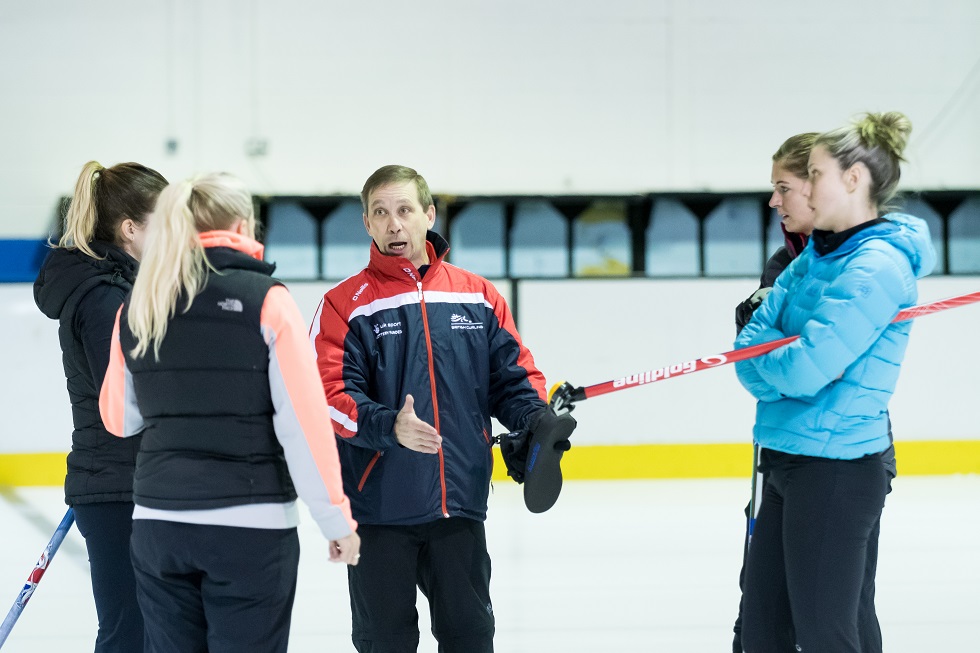
Tony Zummack with Team Muirhead
“We are all pretty centrally located, as are the athletes, and that impacts on our podium teams, for sure, but it’s also having an impact on our podium potential as well as our performance foundation teams, and even academy teams.
“The benefit to the whole system, even though it’s slightly structured to a performance point of view, is that the Scottish athletes working their way up through the system get a benefit from being in the same training environments.
“Whether it’s on the ice or in the gym, they’re immersed in the culture.”
There are more full-time curlers in Scotland than ever before. How does this help?
“For me, being a full-time anything is a mind-set that produces a commitment to doing it. Being a full-time curler doesn’t necessarily mean you are getting paid enough money to live comfortably and not have to do anything else. Being a full-time curler means the choices you are making day to day are based around a goal of a bigger picture, which for most of these athletes is to represent their country in an Olympic Games.
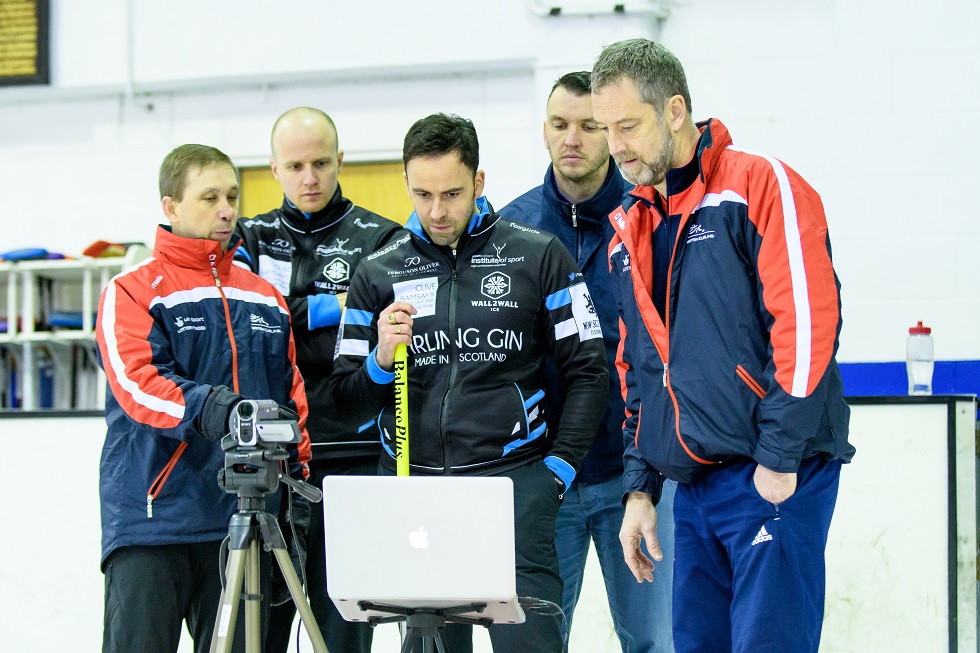
Team Murdoch with Tony Zummack, left, Dave Leith, second right, and Kenny More, far right
“The mind-set then drives the choices you make on a daily basis. How does your week schedule? Are you putting training priorities over getting your hair done? I’m not saying getting your hair done isn’t important, but at the end of the day, it’s two hours on the gym, an hour on the ice, two hours on a physio bed and watching a game on video with your coach, or doing some technical work with a performance analyst … are those the things that are driving your schedule when you’re putting it together in the course of the week?
“If you are, then you are making high-performance decisions that an athlete would make. If those are the secondary choices you are making, then I would question whether or not you are actually a high-performance athlete, because you are not living it 24/7, 365.
“Canada has the most competitive curlers in the world, the best curlers in the world and none of them do it what we would call full-time.
“They all have real jobs, real families and real pressures and they all have mortgages to pay. They manage beer stores, they work in factories, they do all the other things and they are still the best curlers in the world.
“Is being a professional curler a mindset or is it something that just allows you to curl every day so you don’t have to work for a living?”
What else can we learn from the Canadian model, and what advantages do we have over them?
“What you have in Canada is a system where the best teams push the best teams, because you have a million curlers. Let’s say there are a thousand who play at elite level: that’s 250 teams, and you are going to have some very good strength in depth.
“In Canada, good drives good. Over here we are at a little bit of a disadvantage because we don’t have those sheer numbers to work with.
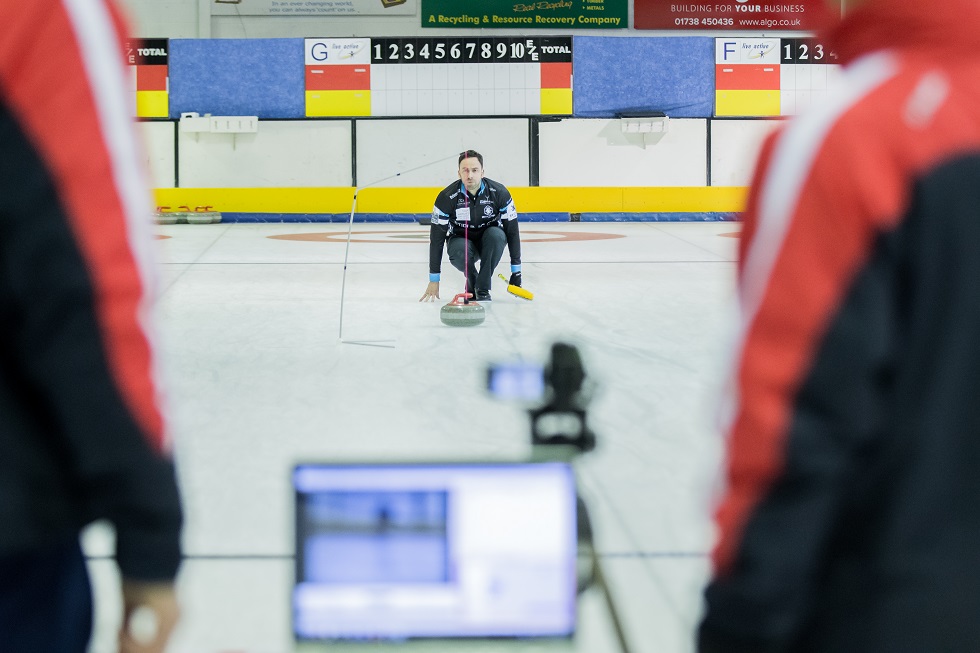
David Murdoch lines up a shot with the aid of performance analysis technology
“We can’t run their system, so it’s about how you manage that. Here we’ve got 10 curling high-performance teams in a system, and if you compare that with Sweden, they’ve got three or four high-performance teams in a system. Which system is better? It’s really about which system works within the structure of the organisation.
“Canada is much more spread out, it’s a land mass with seven or eight time zones, so you don’t have the same amount of contact with each of the teams. The resources it would take to support all of those teams are much greater than they would be in an area the size of Scotland.
“We can make our resources go further, as long as we don’t water down the size of the performance talent pool.
“As soon as we get too much talent living outside the resources, we risk falling into the Canadian structure. The issue is we don’t have as many teams to compete at the same level.
“We need to make sure our teams have access to all the right resources and manpower so that they can continue to develop at the right time and the right level, and not have a whole bunch of athletes out there who are starving for the information and we don’t have the resources to give it to them.”
Are there any new advances that will help our teams prepare better than ever before for PyeongChang 2018?
“We are going to come online with the national curling academy at The Peak this summer and that’s going to give athletes more opportunity to train in the final months before the Games. That’s something we have never had before and we are looking at that to make a massive difference from an access point of view.
“It’s a huge opportunity for us that we’ve never experienced and we will just lightly scratch the surface of that for 2018. It should really start to show benefits for us going into 2022 and 2026, because the next generation of curlers coming up will now be able to have a dedicated curling facility year-round, which is something we have been asking for for the last three Olympic cycles.”
View from the top
Graeme Thompson has been Performance Director of the Scottish and British curling programmes since July 2014.
He told us: “The support provided to performance curlers through the sportscotland institute of sport is very extensive. We currently have a full-time Head of Coaching in Tony Zummack, along with full-time coaches Sheila Swan, Viktor Kjell and Nancy Smith, a full-time physical preparation coach in Dave Leith and a full-time physiotherapist in Lindsay Thompson.
“On top of that the curlers have a lot of access to performance analysis, exercise physiology, sports psychology and Performance Lifestyle expertise, as well as nutrition and medical support.
“There have been some growing pains of professionalism that the programme has had to overcome, and this network has enabled us to do that. When you consider that these athletes sometimes have four games a day in some tournaments, and they might need to be on the ball for as many as nine days in a row, we need to look after their mental as well as their physical health and wellbeing.
“Sleep is a big issue, because they need to be alert and on top of their tactics at all times.
“There is a lot of cohesion between the ‘team behind the team’, who make sure that everything our athletes do in the gym or other non-ice environments supports what they do on the rink in training and competition.”
Find out more
Sport First will continue to take a close look at how Britain’s able-bodied and disabled curlers prepare to take on the world’s best in the run-up to PyeongChang 2018.
For more about British Curling, visit their website. British Curling is funded primarily by UK Sport and The National Lottery.
If you’re interested in getting involved in curling in Scotland, the governing body is the Royal Caledonian Curling Club.

